In the series hospitality influencers, we provide insights into the future of hospitality through interviews with inspiring individuals actively shaping the industry. These thought leaders share their stories and provide industry perspectives, challenges, opportunities, and innovations. Join us in exploring the future of hospitality.
In this article, we interview Pablo Torres, a hospitality management expert specializing in revenue optimization and guest experience. With over 20 years in the industry, Pablo develops innovative strategies that drive ancillary revenue and operational efficiency. He is also a consultant, educator, and LinkedIn Top Voice, recently launching his new book Mastering Hospitality Ancillary Revenue.
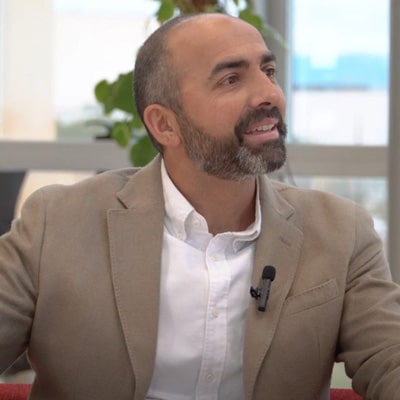
Can you tell us a bit about yourself?
Born and raised in Spain, I studied for a degree in tourism at the University of Salamanca. This got me straight into working in hotels while I was still finalizing my studies. I moved to Ireland after finishing university to improve my linguistic skills.
That kick-started a period of five years abroad. I spent two of those years in Dublin, two in London, and one in Berlin. During that time I was gaining experience in hotels which include Mariott, Radisson, and Melia.
I’d then return to Spain as a front office manager at a 5-star property. Once there, I began taking charge of the property’s revenue management. My duties included a stint at their HQ’s Revenue Management office.
During that period, I felt it was time to further my education with a Certificate in Revenue Management from Cornell University. That endeavor would lead me to complete an Executive MBA at IE Business School.
That was the time when I moved from working in hotels full-time to training and consulting. I did so for twelve years straight, with most of it based in London. That job, helping hotels optimize their ancillary revenue, took me to 30 countries. I trained over 4,000 professionals in more than 300 hotels and projects globally during that period.
In 2022 the family and I decided to move back to Spain while I also decided to change jobs. I set up my own consulting firm where I could support different companies and projects.
One of the main projects has been, over this period, being in charge of TEDUKA training services. TEDUKA is where we run different online training programs such as revenue, coliving management, and onsite training for hotels.
I’ve also been collaborating with different educational institutions since 2019. This has entailed lecturing, coordinating, and creating programs and content for them. All part of my aim to spread the word and educate people about all things revenue.
What was your first job in the hospitality industry?
Besides having worked as a bartender in my hometown when I was a teenager, my first formal job in hospitality was as a night receptionist. I was starting my 3rd year at University when I found out that a friend of a friend was leaving her job at the 4-star hotel where she was working. I heard about it and asked her to introduce me to her boss, as I wanted to apply for the job. And the rest is history.
What led you to specialize in revenue management within the hospitality industry, and was there a particular moment or experience that sparked your interest in this area?
I always had an interest in revenue management. However, as part of Gen X, I’ve worked in properties that didn’t even have dynamic pricing. For example, I was working as a front office manager at a 5-star property. That property was in turn part of a company’s small collection of 5-star boutique properties. And all revenue management from their HQ was done by a single person.
Since I was working at their largest property, it made sense that we run our own revenue management internally. Internal management would unburden the HQ of some pressure. And that is how it all started. Still working with that same hotel collection, I was asked to temporarily move to Barcelona in order to support their revenue management team’s expansion at their HQ. The knowledge I gained on the job was instrumental for my next professional step when I joined TSA, now FPG, as an ancillary revenue consultant.
How do you describe the value of revenue management?
I believe there is still a certain misconception about the importance of revenue management. For many people, revenue management is about updating rates and having a healthy channel mix. However, there is much more to the subject. The current revenue manager should already be at the same level of hierarchy as the director of sales. The role should be understood as director of profitability, as it touches on sales, marketing, finance, etc.
Let me explain. In many hotels, the sales team is “only” in charge of bringing business to the hotel, no matter the cost. Then you have finance, whose “sole” task is to keep expenses to the minimum. However, the current revenue manager is in charge of optimizing the profitability of the property.
This focus on the property’s profit obviously includes selling as much as possible at the lowest possible cost. However, on top of that, the role also involves maximizing income by creating and improving new sources of revenue. This is ancillary revenue. There are some companies that already have a CRO, chief revenue officer, and that is the way forward.
Congratulations on the launch of your first book, Mastering Hospitality Ancillary Revenue. What inspired you to write the book, and how long was the process from idea to publication?
I’ve been very lucky to work first-hand with great hospitality leaders during all of these years of global training and consulting. I’ve created and optimized endless ways to generate more revenue for their businesses as I worked alongside them.
I was attending an event in Amsterdam in early 2024. During the event, a few of my colleagues over many different conversations, told me “I can not think of any book focused on ancillary revenue. Pablo, you know a lot about it, why don’t you write that book?”.
The fact that the same comment was made several times on the same day by different people made me wonder if that would make sense and add value to the industry. So I researched online, and I realized that, when it comes to hotels and hospitality, there is barely any literature about the topic.
There are some great guides focusing 100% on the airline industry. However, it was surprising to see that not much has been written about ancillary for hotels. That disparity demonstrates a difference that exists to this day between airlines and hotels when it comes to developing those income streams. That’s why I thought it made sense to try to add value to the industry and write a book on how to master ancillary revenue.
All in all, from planning to publication, it’s taken me six months to complete my book. Part of this was simply structuring it. For example, by asking top industry professionals to contribute. I was very lucky to have everyone jump on board. Then there was the process of shaping the book into its final form. In the end, it grew into 10 chapters, 216 pages, and over 100 examples of best practices and tools found around the world.
The concept of ancillary revenue is growing in hospitality – how would you define it, and why do you think it’s become so essential for the industry?
There’s a theory that states “ancillary revenue is all revenue that is not generated by your core business”. Take aviation as an example. The core business in aviation is carrying people from one place to another. One source of ancillary revenue, one of many, could be the in-flight duty-free. In a Hotel, if the core business is selling rooms, everything else would be ancillary. Some could argue feeding those guests is also a core business – the subject is open to debate.
Now, if we understand a hotel as a place where people go to sleep, then we’re only focusing on the core business. In this case, we’re missing out on much of the ancillary. However, what if we see a hotel as a place where people go to enjoy a full experience, have a great time, gather with friends, escape, enjoy a great meal, celebrate, and also sleep? Here I’m quoting Pere Estela, Global Ancillary Director at Iberostar Group and one of the book contributors. If we operate under that definition then the doors are fully open to endless possibilities to generate new streams of revenue.
Room rates are growing at a fast pace. On top of that growth rate, they are already stretched in certain locations. That means that the traveler’s budget to spend on sleeping might have hit its maximum. However, when it comes to extras, there are still a lot of untapped streams that we can work on and optimize, to improve the visitor’s experience.
The end goal must always be: “Make sure the customer leaves the premises happier than expected, having spent more money than originally planned”. This is because people want to live an experience and enjoy the moment. If we as hoteliers can improve the time they spend with us, if we can add value, then that time becomes priceless for the customer.
What are the key takeaways from your book that hoteliers and revenue managers should be paying attention to?
That ancillary revenue is not only about writing “happy hour” in your bar with chalk or creating a “romantic package” for Valentine’s Day. Rather, mastering ancillary revenue can be extremely profitable if done correctly. In fact, in some hotels over 50% of all revenue comes from ancillary revenue.
And that means planning ahead: understanding your customers, staying informed about market trends, monitoring competitors, and learning from industry leaders. It also involves recognizing that the customer journey is a continuous cycle, where each interaction shapes the next.
Using the best technology you can afford is essential, with powerful tools now accessible for independent hotels. Digital marketing and social media have also leveled the playing field, making it possible for smaller properties to reach broad audiences and create impactful campaigns without huge budgets.
Finally, being proactive in exploring new ideas and concepts is key. Revenue management applies to every square meter of your property; don’t limit it to just the rooms.
Can you share some examples of successful ancillary revenue strategies you’ve observed or implemented yourself?
Absolutely. One of the most impactful, and one which I detailed in my book, was at a large resort. A full-on ancillary revenue plan was implemented at the front desk. This included both upselling their large inventory and cross-selling their many boarding options. This property, after personally training their team, generated over one million USD during that first year.
Another one, a luxury urban hotel, was performing poorly and requested our services. After auditing their process, we realized the reason for the low results was the very low incentive the team was receiving. The luxury hotel’s team was earning far below industry standards. After discussing their earnings with the property management, it was raised and set at the same level as their comp set.
Afterward, upon a full training program, the team multiplied their upsell results by four. This came out to a value reaching $1.6 million in that first year post-implementation.
For a hotel just starting to focus on ancillary revenue, where would you recommend they begin?
Firstly, they have to review their offering. Besides selling rooms, what else do they sell? Do they have a restaurant, spa, golf course?
Next, think about the inventory. Are all of the property’s rooms the same? I doubt it, such is seldom the case. With that in mind, how many different categories do they sell? Or to recontextualize the question, think about how many different categories they could sell. There’s often a big difference between the two.
Then, consider where they are located. Is it urban, resort, boutique, eco-lodge, by the beach, in the mountains? The location will determine many of the external activities that they will be able to offer to add value and improve the experience of their customers.
That would be the basis. Once they have reviewed those items in detail, it would be the right time to do some additional research. For example, to check on what the current trends are, what the comp set is doing, what their aspirational comp set is doing, etc. This in particular can be a very important tool. All of this is for a purpose. The steps are there so that they can set a list of new ancillary revenue streams that could be created or optimized.
Then, the final step would be to establish a plan. The plan would have inclusions, prices, offerings, marketing, incentives, etc. These items need to be very clear for all. Sometimes that means a lot of work. The sheer amount of effort is why many hotels prefer to rely on an external consultant to create the entire program tailored for them from scratch.
What common mistakes do you see hoteliers making when optimizing ancillary revenue?
Believing that revenue management can only be done within the confines of bedrooms. In many cases that keeps happening due to hotel management being overloaded with work. When the work piles up there’s no time to stop and think ahead. So, in most cases, the ancillary revenue plan is just upselling rooms at check-in. And maybe upselling breakfast if you’re lucky.
That’s all. However, if they managed to stop, check around, and think a bit outside of the box they would realize something. They’d see that they have an almost endless amount of possibilities to optimize their income.
With the rise of digital solutions and guest personalization, how do you see technology influencing ancillary revenue streams in hospitality?
It is already happening, and at a faster pace than we might think. So, if you’re a hotelier and you’re reading this? If you haven’t incorporated some layer of technology then you’re already lagging behind!
Many hoteliers still only begin to get in touch with their customers when they enter their premises. However, that customer’s journey started much earlier. A good CRM is key to engaging with customers at the beginning of the cycle and it increases loyalty.
From that point forward, the engagement can be improved at every step of the process by using technology. For example, an app to offer pre-arrival ancillary options, software to facilitate pre-arrival check-in, online engagement to suggest different services during their stay, mobile check-out and billing, email capture, and post-stay review. And it’s all more affordable than ever.
Where do you see the field of revenue management heading in the next 5-10 years?
As mentioned earlier, I foresee revenue managers reporting directly to general managers/VPs, in a role that might be renamed as chief revenue officer, or chief profitability manager. I see the coordination of sales, marketing, and finance efforts to make sure all revenue streams are optimized. This means maximum income combined with minimum expenditure. And that will all be possible thanks to the impact of technology on the field.
More Tips to Grow Your Business
Revfine.com is the leading knowledge platform for the hospitality and travel industry. Professionals use our insights, strategies, and actionable tips to get inspired, optimize revenue, innovate processes, and improve customer experience.Explore expert advice on management, marketing, revenue management, operations, software, and technology in our dedicated Hotel, Hospitality, and Travel & Tourism categories.

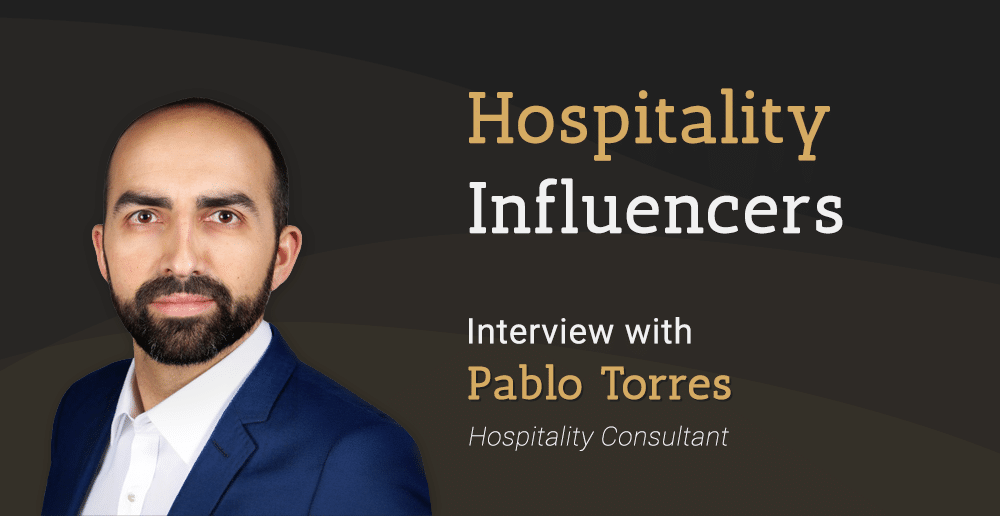

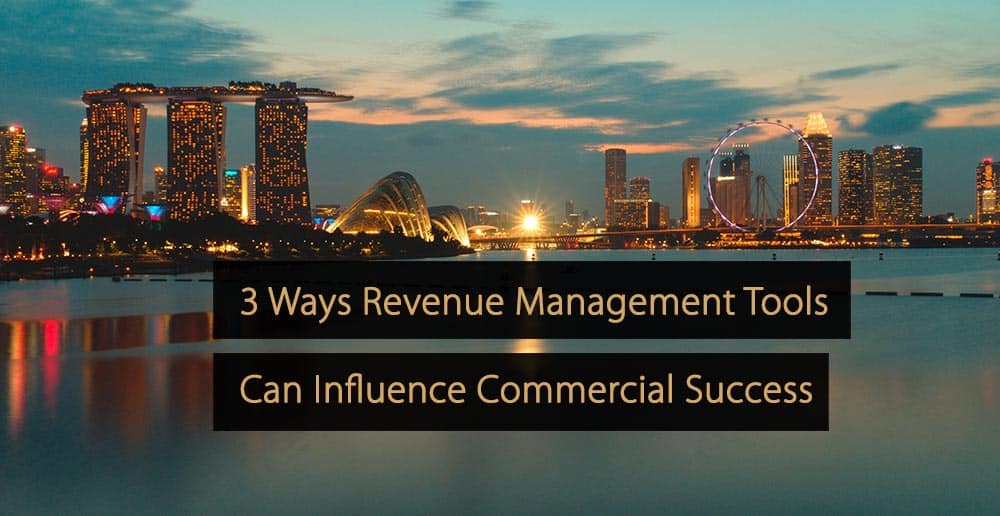


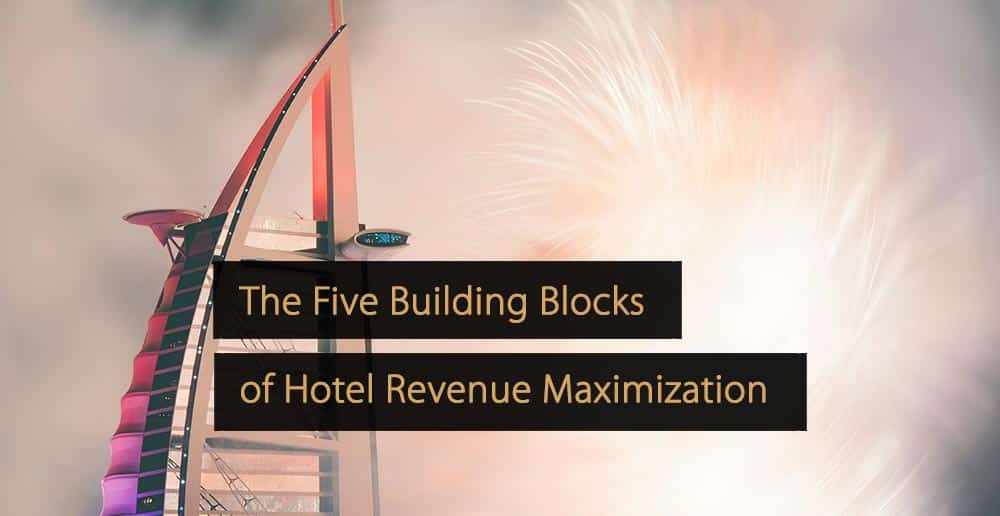
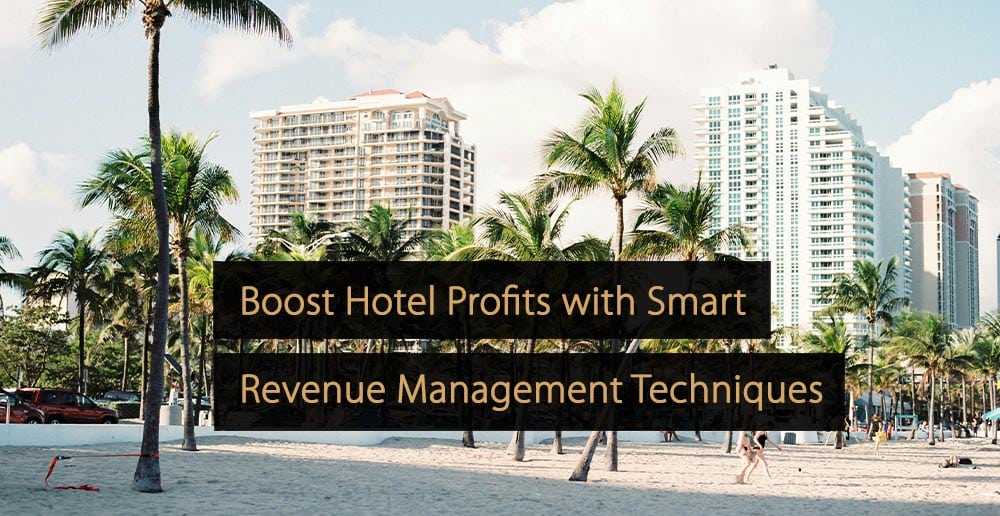
Leave A Comment